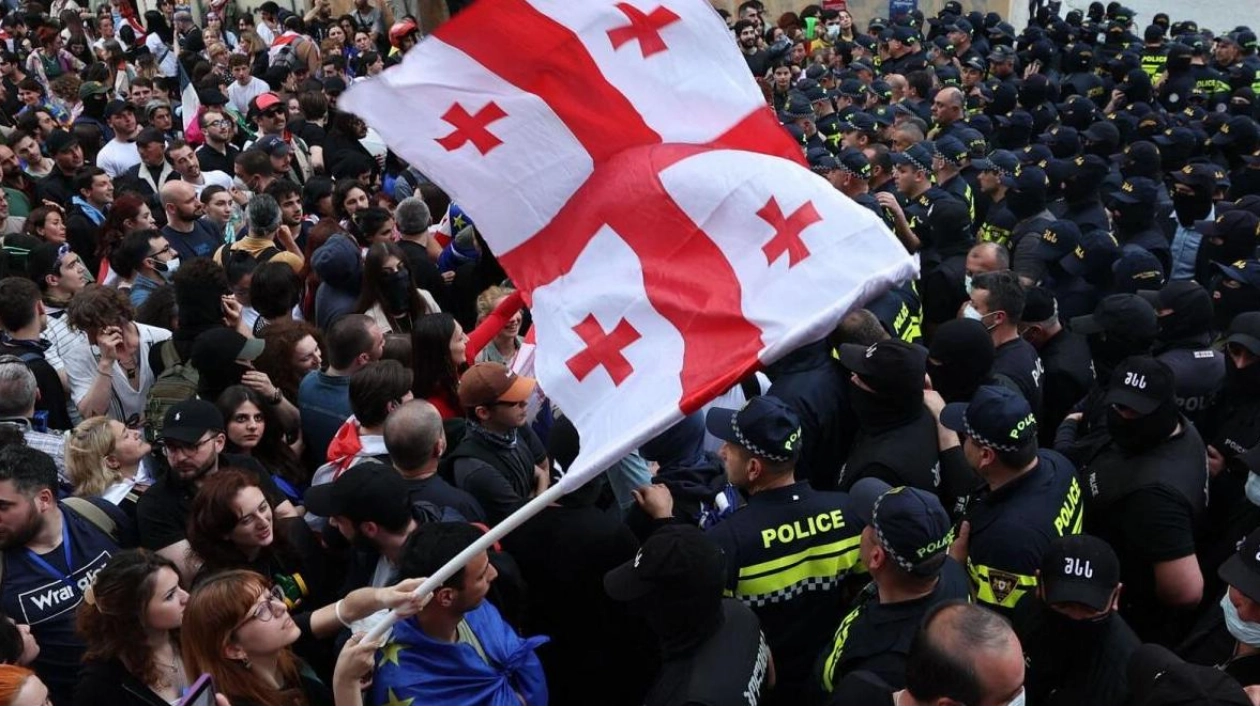On Monday, Georgian President Salome Zurabishvili requested the nation's highest court to invalidate a contentious 'foreign influence' law that has ignited widespread protests and received criticism from Western nations. The law, proposed by the ruling Georgian Dream party, was passed in May amid extensive street demonstrations and warnings that it would jeopardize Tbilisi's efforts to join the EU. Critics have likened the law, which mandates that organizations receiving at least 20% of their funding from abroad must register as 'entities pursuing foreign interests', to Russia's restrictive legislation designed to suppress dissent.
President Zurabishvili, who is pro-Western, submitted a petition to Georgia's constitutional court, urging it to 'suspend the law's implementation and annul it permanently', according to her parliamentary secretary, Giorgi Mskhiladze. He deemed the law 'unconstitutional' as it conflicts with a clause that obliges authorities to 'take all measures within their jurisdiction to ensure Georgia's full integration into the European Union and NATO'. Despite Zurabishvili's veto, lawmakers proceeded to enact the law. As a staunch critic of the ruling party, Zurabishvili has urged the opposition to unite in preparation for the October parliamentary elections.
The Georgian government has justified the law, stating its purpose is to enhance transparency regarding NGOs' foreign funding. However, the ruling party has been widely accused of steering the country away from its EU integration path and closer to Russia's influence. Georgia's constitution includes a commitment to EU and NATO membership, a goal supported by over 80% of the population, according to polls. The EU has cautioned that the law is 'inconsistent' with Georgia's aspirations to join the bloc, which it is currently a candidate for. In June, EU leaders suspended Georgia's accession process. The United States has implemented visa restrictions on 'individuals who undermine democracy in Georgia' and initiated a thorough review of bilateral relations.






